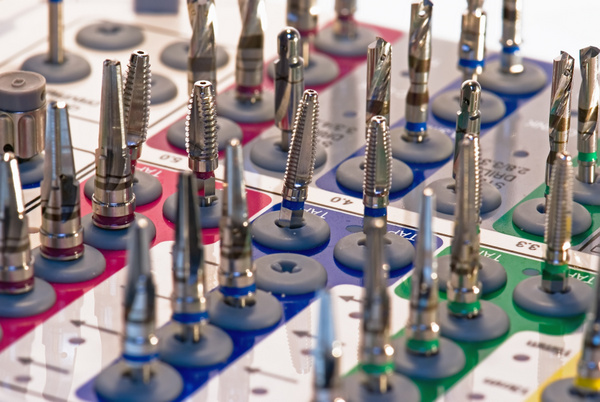

Unbeknownst to many people, dental implants can fail for a number of reasons. Although they have high success rates, they’re not perfect. Complications may arise depending on the case and can result in a faulty implant.
However, it’s important to note that the patient and the condition of their mouth has a lot to do with the success of an implant. So what factors play a role in dental implant failure? Let’s take a look.
Early Implant Rejection
Early implant rejection occurs in the beginning stages of the dental implant procedure and as a result, stops the entire process. The rejection often comes as a result of an infection or allergic reaction to the metal inserted in the jaw in the first step of the implant process. Because the titanium post is rejected, it stops the process of osseointegration, which is crucial for the success of the dental implant. If the fixture cannot bond with the jaw, the treatment won’t work.
Late Implant Rejection
Although dental implants are not susceptible to decay like natural teeth are, they can still be prone to infection. Poor dental hygiene, home care, and smoking are all factors that can cause a healthy implant to fail. This is known as late implant rejection because, in contrast to early implant rejection, it occurs when the bone has gone through osseointegration and has healed.
Failed Osseointegration
Much like with early implant rejection, failed osseointegration occurs in the first step of the procedure. When osseointegration fails, the titanium post, which is used as the foundation, and the jawbone don’t bond. This prohibits the dentist from moving forward with the procedure. Placing the abutment and mounting the crown is impossible without the support of the titanium post.
Peri-Implantitis
Peri-implantitis is an infection that can occur either during or after the dental implant procedure. This infection creates bacteria in the mouth and as a result, damages the implants causing them to fail. Peri-implantitis is known as a form of gum disease and if not treated in time, can cause dental implant failure or even bone loss. In extreme cases, implant replacement may be necessary to get rid of the infection.
Old Implants
If your implants were placed a couple years ago and are considered old, they may be more likely to fail in the long run compared to modern dental implants. Older implants may not be as durable as the current ones due to the recent and major advancements made in technology. Modern dental implants will be more able to stand the test of time in contrast to older implants.
Visit Zajac Dental
If you’re in need of dental implants and are seriously considering the investment, don’t hesitate to contactDr. Zajac in Oakville, ON. Our dedicated dentist and staff at Zajac Dental are determined to provide quality treatment that will leave you feeling renewed for years to come. We’re here to help answer any questions or concerns you may have. Our priority is your health! Call today!